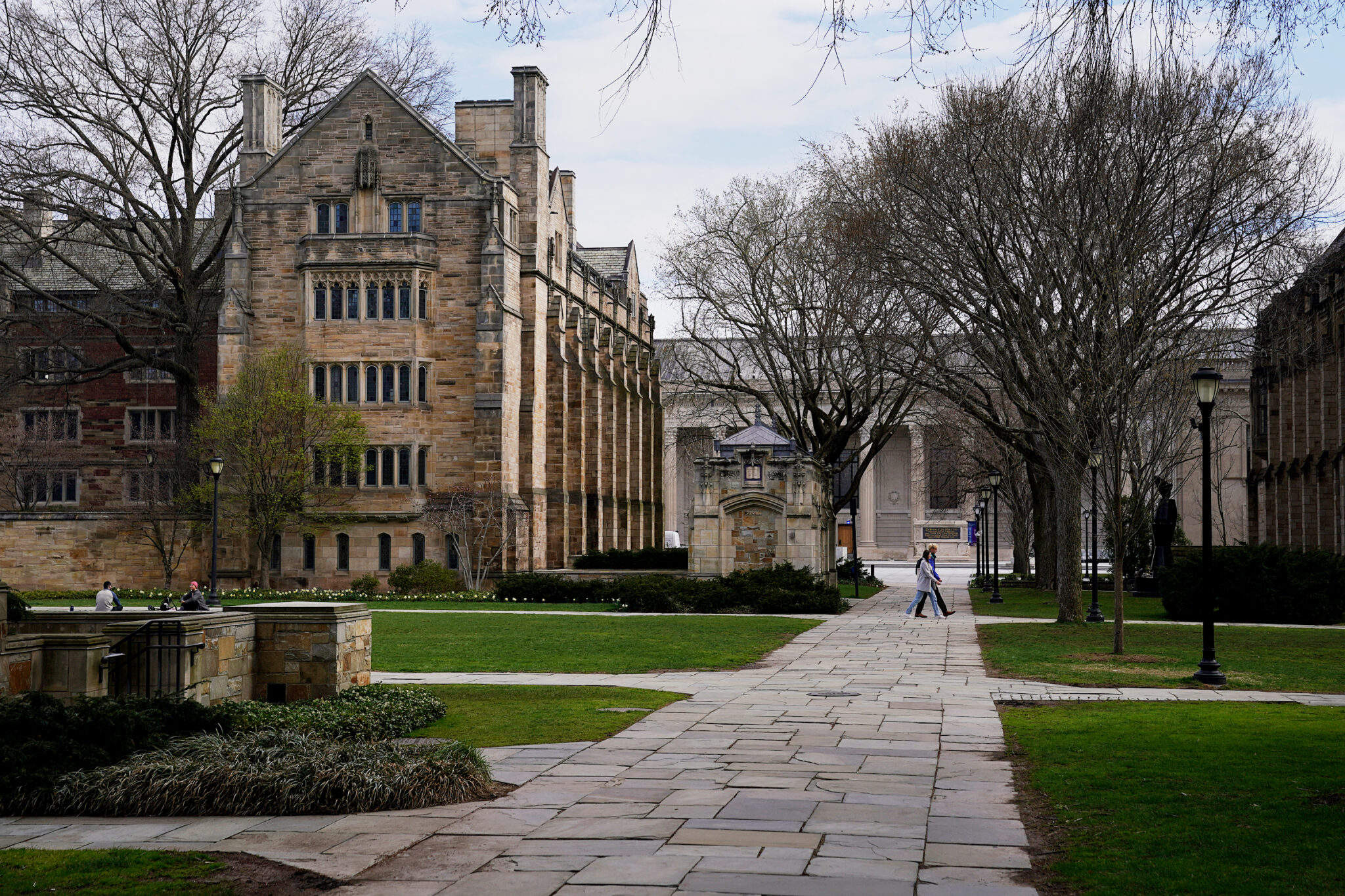Yale endowment grows 1.8 percent
Although Yale’s investments grew this year, the value of the endowment dipped after also accounting for budget disbursements and gifts.

Tim Tai, Senior Photographer
The University’s endowment grew 1.8 percent for the 2023 fiscal year, a slight improvement from last year’s 0.8-percent return.
The return represents $759 million in investment gains, which the Investments Office reported Tuesday evening. After accounting for an additional $292 million in gifts to the endowment and a $1.8-billion endowment disbursement to Yale’s annual operating budget, the total value of the endowment dipped to $40.7 billion for 2023, down from $41.4 billion last year.
This year’s return is Yale’s second lowest since the Great Recession, outperforming only figures from last year, when Chief Investment Officer Matthew Mendelsohn said that he expected “challenging times ahead as rising interest rates, inflation, and the geopolitical environment provide stiff headwinds.”
The modest growth this year lags behind the S&P 500, which has risen approximately 18 percent over the same period. Last year’s report coincided with the index’s 12-percent decrease.
“It’s difficult to evaluate performance on the basis of a single year, especially one with some pretty big surprises,” William English ’82, a professor at the Yale School of Management, told the News. “That said, over a longer horizon, the Yale endowment has performed very well.”
English said that the “surprises” he was referring to include bank failures last spring and economic difficulties in China.
Mendelsohn, now in his third year as Yale’s CIO, did not include a statement in this year’s press release. He included statements for the Investments Office’s 2021 and 2022 press releases.
Many of Yale’s peer institutions have not yet released their endowment returns for 2023. But the University’s 1.8-percent return runs ahead of peers that have also reported, including the University of Pennsylvania, Duke University and the Massachusetts Institute of Technology, which have reported returns of 1.3 percent, -1 percent and -2.9 percent, respectively.
Among the broader landscape of American university endowment performance, though, it is less clear if Yale is outperforming.
Compared to the other 13 endowments currently listed on the Pensions & Investments “U.S Endowment Returns Tracker” — which also includes Penn, Duke and MIT — Yale falls short of the 3.9-percent median gain for 2023. The University of Colorado Foundation, University of Minnesota Foundation and Ohio State University top the list with returns of 7.8 percent, 7 percent and 6.9 percent, respectively.
David Yermack, a finance professor at New York University’s Stern School of Business, called Yale’s 2023 return “a dreadful result.”
“It is almost certainly a result of Yale grossly over-weighting alternative investments in its portfolio,” he said.
Charles Skorina, an endowment expert who leads a recruitment firm for investment officers, said that Yale did “fine” considering peer performance so far.
He also pointed out that Yale’s investment strategy is prone to “cyclical” performance, which makes it difficult to draw conclusions about long-term performance in any given year.
“They run an alternative heavy portfolio,” he wrote to the News, citing venture capital and private equity as examples of alternative assets. “These are cyclical performers. Over a 10 [year] period, they deliver excess returns. But every now and then, you look like a goat.”
According to the press release, Yale pursues an investment strategy designed to “achieve its goals through the careful consideration of risk and return across asset classes,” which includes public equities, marketable alternatives, leveraged buyouts, venture capital and real assets.
Under the leadership of former chief investment officer David Swensen, Yale pioneered an industry-wide shift from investing primarily in traditional assets — stocks and bonds — to “alternative assets,” such as international stock funds, emerging market funds and real estate.
Swensen held the position from 1985 until his death in 2021. The School of Management recently announced the establishment of the Swensen Asset Management Institute, which Skorina previously speculated could become a “pipeline” for the Yale Investments Office.
Mendelsohn is a fellow of Yale’s Berkeley College.







